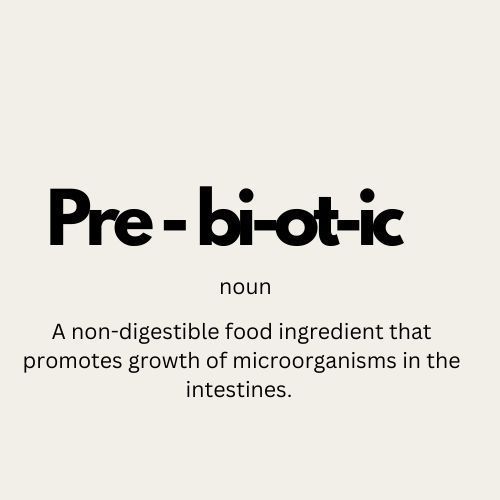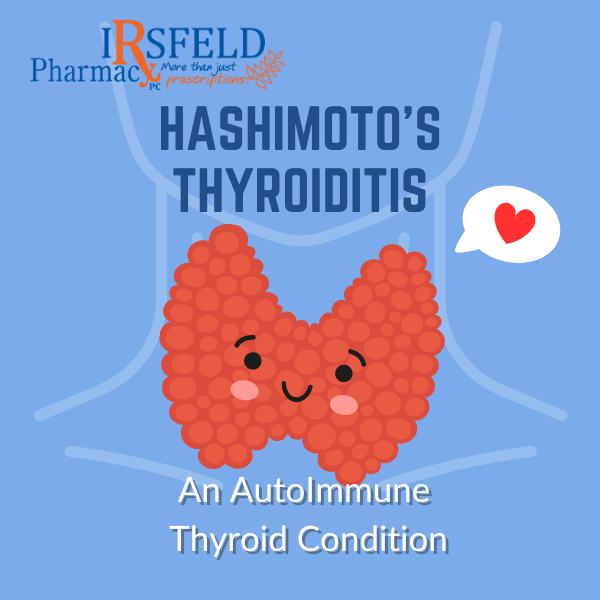Why "Prebiotics" and did you know you may already have them in you diet?

When we first started talking about the benefits of dietary supplements in the early 2000’s, there was only one prebiotic that was available as a supplement and that was FOS, also known as fructooligosacharide. It seems like the world of prebiotics is on a cusp of exploding like the probiotic world where we are starting to see more and more “designer” products for specific conditions. This is a great benefit for the consumer as they are the direct beneficiary of the ongoing research into these incredible products. Let’s take a closer look at how prebiotics can help you.
A common question we receive at the pharmacy is, “Do I need to take a probiotic or a prebiotic, and which is better?” I like this question because it allows me to educate the patient about both supplements. The answer to the question is yes however you can also get these in the foods that you eat, so you don’t even have to take a supplement if you don’t choose to. If you don’t eat food that gives you these nutrients, taking a supplement with them allows you to benefit from these products. Both products are unique, and they work in different ways, so one is not necessarily better than the other, and the two enhance the benefit of the other, we call this a synergistic effect.
Prebiotics are the fertilizer or food that makes the good bacteria in the gut flourish. We can seed the heck out of a garden, but if we don’t nourish the plants, they won’t give us the results we hope to achieve. The same thing happens with good bacteria in the gut and the food we give them. Prebiotics are non-digestible carbohydrates found most often in certain high-fiber-containing foods.
Let’s continue with the garden analogy and talk about fertilizer. We can fertilize our gardens naturally or with products containing nitrogen and phosphorus to make our plants grow. The same holds true when using probiotics for our gut.
The natural fertilizer for a garden could be from compost, which has decomposed plant materials over time. The natural fertilizer for our gut comes from the foods that we eat. These foods might include under-ripe bananas, onions, garlic, jicama, whole grain wheat, apples with skin, many beans, and leeks. It makes sense that we use natural products when we can to get the best results.
The prebiotics not coming directly from food consumption come in many forms. As I stated at the beginning of this article, the one I was first introduced to was FOS. Saccharides are forms of sugar that are not systemically absorbed, so they stay in the intestinal tract and don’t get used until they reach the colon. The colon is where most of our bacteria reside. We want the prebiotics to end up in the colon, allowing all bacteria to enjoy the prebiotic buffet.
Additional prebiotic options include:
•Galactooligosaccharide – can be formed by an enzymatic reaction using lactose as the starting material or obtained from plant fibers
• Xylooligosaccharides – a naturally occurring prebiotic extracted from plant fiber
• Inulin is a type of fructan, an oligofructose carbohydrate. Inulin is a soluble plant fiber found in high concentrations in the chicory plant and up to 36,000 other plants. Some foods that contain inulin are whole wheat, onions, garlic, banana’s, asparagus, and artichokes, all of these foods naturally give us both a probiotic but also plenty of fiber.
• Resistant starches – these are unable to be broken down by digestive enzymes and pass through to the colon unchanged, becoming food for the bacteria – oats, cooked and cooled rice, and raw potato (I love raw potatoes & now I know why)
• Human milk Oligosaccharides – found in human breast milk
• Isomalto-oligosaccharides (IMOS) – short-chained carbohydrates produced from maltose – found in some fermented foods (miso and soy sauce) and honey
There are many benefits to taking prebiotics than simply the food that feeds our bacteria:
· Improve our digestive health
· Promotes healthy inflammatory markers
·Powerful antioxidant support
·Strengthen our microbiome
· Increase levels of short-chained fatty acids resulting in many health benefits
· Decreases the pH of the colon, increasing minerals like calcium and magnesium
Past discussions talking about our gastrointestinal system have touched on the fact that our gut is a complex and delicately balanced system. When we eat poorly, become dehydrated due to lack of water consumption, sit around not exercising, and abuse it with alcohol, we pay the price. Having a happy gut will yield a happier life.
As you can see, we not have different options to consider other that FOS and I believe the options will continue to grow as research and development into this area of dietary supplements expands. This growth around prebiotics is exciting because to many patients suffer from GI issues. Prebiotics may be something to consider if you have gut issues.
Please stop in or call the pharmacy 701-483-4858, if you want help choosing a prebiotic product or if you need help with gut health in general. You can access this and other articles on our website at irsfeldpharmacy.com.
Until next time, be vigilant about your health!!












Share On: